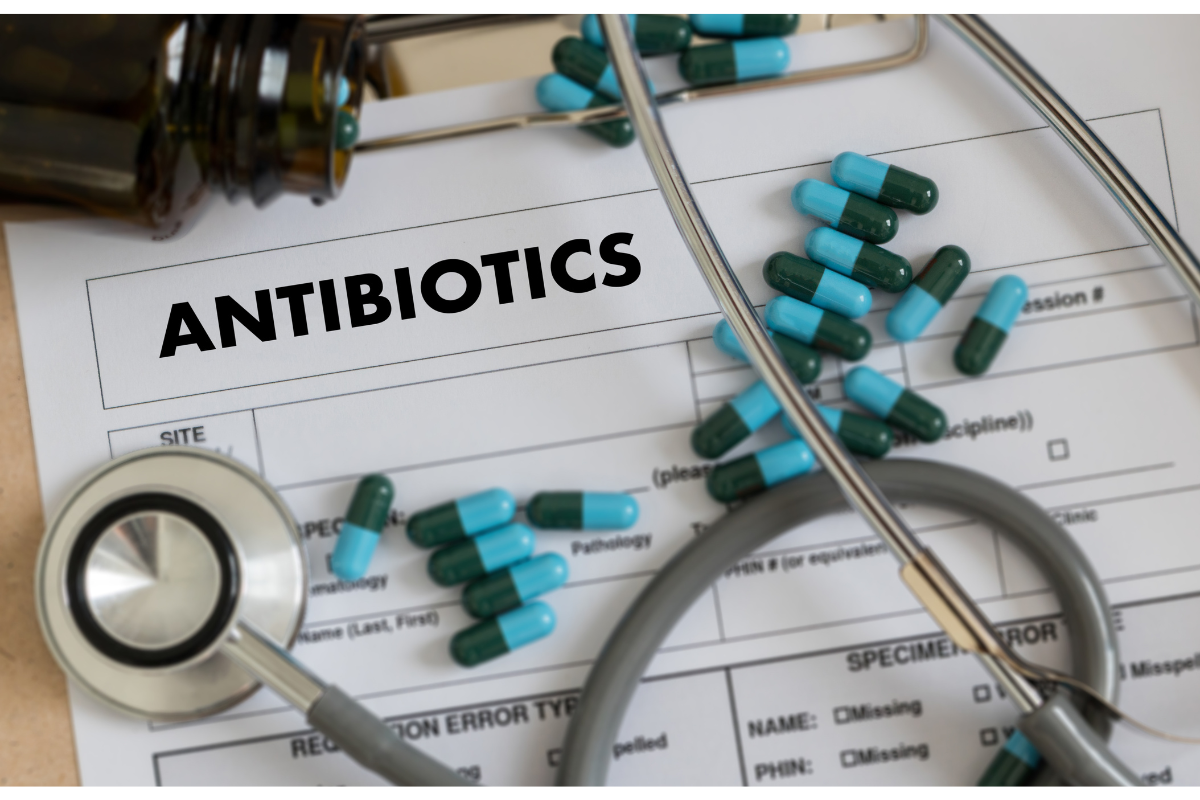What are Antibiotics?
Antibiotics are a group of drugs used to treat bacterial infections.
Bacteria are small organisms that live and multiply in many different hosts, including humans, animals and plants. All of us have millions of bacteria in our bodies — some are helpful and others can grow inside our bodies and make us sick by causing infections.
Examples of bacterial infections include strep throat, whooping cough, and certain types of pneumonia. It is important to know that bacteria may be spread between people and other hosts in many different ways, including but not limited to, direct contact with other infected people or by eating or drinking contaminated foods.
The introduction and correct use of antibiotics has saved countless lives and prevented significant suffering by helping people overcome or avoid bacterial infections.
What is antibiotic resistance?
Today antibiotics are some of the most commonly prescribed medicines in the world. However, there is growing concern that many disease causing bacteria develop the ability to overcome the bacteria-killing effects of antibiotics — this is know as “antibiotic resistance”. This causes them to be less effective or ineffective in treating the infection. Once bacteria develop resistance, the potential problems are severe and potentially life threatening, if no effective treatment is available.
How many people are impacted by antibiotic resistant bacteria annually?
According to the Centers for Disease Control and Prevention (CDC), about 2 million Americans are infected with antibiotic resistant bacteria annually and approximately 23,000 people will die from their infection. In addition, more people will die due to complications that result from their antibiotic resistant infections.
It is important to understand that scientists believe antibiotic resistance is worsened by the overuse of the drugs. For example, antibiotics do not treat viral infections like the common cold or the flu. If you have a viral infection, you can actually cause more harm by taking unnecessary antibiotics.
Can I help prevent antibiotic resistance?
Yes, there are a number of things you can do to prevent antibiotic resistance from becoming a greater concern for you and others. First, always tell your doctor you only want to take antibiotics if it is really necessary. Remember, antibiotics will not treat viral infections. If your doctor does want you to take antibiotics, you can help prevent antibiotic resistance by taking them exactly as prescribed by your doctor. Taking antibiotics as prescribed means taking the right dose at the right time and always finishing your prescription. It should go without saying, but it is important never to share or take another person’s antibiotics because they are not prescribed for you by a doctor.
Lastly, you can prevent antibiotic resistance by taking everyday precautions to reduce your risk of contracting or spreading bacterial infections. This includes cleaning hard surfaces and washing your hands with soap and water. The CDC and the Food and Drug Administration (FDA) both state that regular soap is just as effective at reducing your risk of illness as antibacterial soaps and body washes. In fact, the FDA is requiring safety and efficacy research from manufacturers who want to include antibacterial agents in soap because they believe that overuse of antibacterial soaps could lead to antibiotic resistance and other negative health effects.
Are scientists working to prevent antibiotic resistance from becoming a major public health concern?
Yes, scientists are conducting research to create new antibiotics to treat bacteria infections that are resistant to current antibiotics. Also, the FDA is working to prevent our food supply from contributing to antibiotic resistance by phasing out the use of antibiotics unless prescribed by a vet in animals raised for food.
Continue reading September 2022 Newsletter: Top 10 Ways to Practice Good Gym Hygiene and Etiquette

